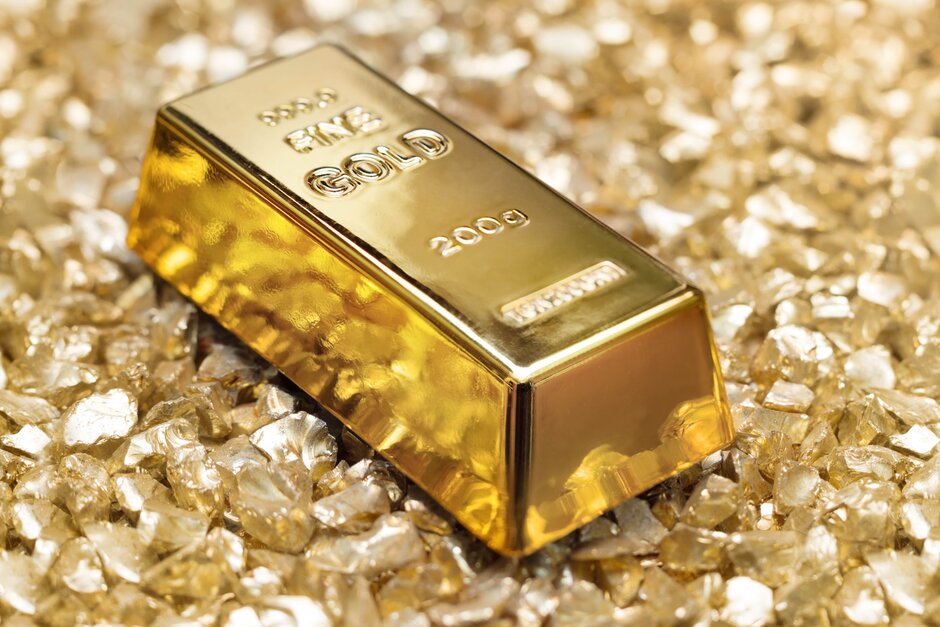Central banks added more Gold to reserves in May

Central banks continued to buy gold in May, but the pace slowed moderately with China at least temporarily out of the picture.
Central banks added a net 10 tons of gold in May, according to the latest data compiled by the World Gold Council. Central banks bought 23 tons of gold, offset by 13 tons in gross sales.
The National Bank of Poland was the biggest gold purchaser in May, adding 10 tons of gold to its reserves.
Poland was the second-biggest gold buyer in 2023. The Polish central bank bought 130 tons of gold last year, increasing its holdings by 57 percent, to 359 tons.
In 2021, Bank of Poland President Adam Glapiński announced a plan to expand the country’s gold reserves by 100 tons. The central bank reached that goal in September of '23 and kept buying.
When he announced the plan to expand its gold reserves, Glapiński said holding gold was a matter of financial security and stability.
"Gold will retain its value even when someone cuts off the power to the global financial system, destroying traditional assets based on electronic accounting records. Of course, we do not assume that this will happen. But as the saying goes – forewarned is always insured.
And the central bank is required to be prepared for even the most unfavorable circumstances. That is why we see a special place for gold in our foreign exchange management process."
Turkey continued to expand its gold reserves in May, adding another 6 tons to its stockpile. The Turkish central bank has been the biggest buyer so far in 2024, adding over 40 tons of gold to its holdings.
The Turkish central bank has bought gold for 12 straight months after liquidating 160 tons of gold in the spring of 2023.
India continued its gold buying spree in May, adding another 4 tons of gold to its reserves. The Reserve Bank of India has been buying gold since 2017. Over that period, the RBI has increased its gold holding by over 260 tons.
An Indian economist told the Times of India that the push to accumulate gold was based on both political and economic reasons. He said that the "reliability" of the U.S. dollar has "diminished." He noted the "noticeable decline" in the confidence in U.S. dollar assets.
Another economist told the Times, “It makes a lot of sense (to invest in gold), given the increased volatility in the FX market, elevated interest rates in the U.S., and, of course, also as the central banks in each economy would like to diversify the asset classes in which they are parking their reserves.”
India recently transported 100 tons of its gold from the UK back into India.
The Czech Republic was the other big buyer in May, adding 3 tons of gold to its reserves.
China was notably absent from the May central bank gold buying report. After adding gold to its reserves for 18 straight months, the Chinese suddenly went quiet. When the Chinese reported no changes to their official reserves in May, it precipitated a panicked gold selloff.
Despite the kneejerk reaction, it seems unlikely that the Chinese are finished adding gold to their reserves. There are preliminary indications that China officially added gold to its reserves in June.
There is also some speculation that China is adding a significant amount of gold to its reserves off the books.
Kazakhstan was the big seller in May, shrinking its reserves by 11 tons. This comes on the heels of a 6-ton increase in April. It is not uncommon for banks that buy from domestic production – such as Uzbekistan and Kazakhstan – to switch between buying and selling.
Despite the slowdown in central bank gold buying in May, there is no indication that they are souring on the yellow metal. According to the most recent World Gold Council survey, 29 percent of central banks plan to add more gold to their reserves in the next 12 months. The WGC said it was the highest level since the survey began in 2018.
Only 3 percent said they had plans to decrease gold reserves.
Earlier this year, the World Gold Council said the continuation of gold buying supports its expectation that "2024 will be another solid year of central bank gold demand."
"Last year central banks placed great emphasis on gold’s value in crisis response, diversification attributes, and store-of-value credentials. A few months into 2024 the world seems no less uncertain meaning those reasons for owning gold are as relevant as ever."
Last year, central bank gold buying fell just 45 tons short of 2022’s multi-decade record.
According to the World Gold Council, central banks net gold purchases totaled 1,037 tons in 2023. It was the second straight year central banks added more than 1,000 tons to their total reserves.
Central bank gold buying in 2023 built on the prior record year. Total central bank gold buying in 2022 came in at 1,136 tons. It was the highest level of net purchases on record dating back to 1950, including since the suspension of dollar convertibility into gold in 1971.
China was the biggest buyer in 2023.
Analysts at ANZ Bank recently said they expect central bank gold buying to remain hot for at least the next six years.
According to these analysts, "Depleted trust in the U.S. fixed-income assets and the rise of non-reserve currencies are other themes that could support central bank gold buying."
To receive free commentary and analysis on the gold and silver markets, click here to be added to the Money Metals news service.
Author

Mike Maharrey
Money Metals Exchange
Mike Maharrey is a journalist and market analyst for MoneyMetals.com with over a decade of experience in precious metals. He holds a BS in accounting from the University of Kentucky and a BA in journalism from the University of South Florida.

















